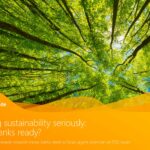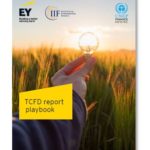European banks have much room for improvement with regard to their assessment of the environmental credit risk of projects for which potential clients are seeking funding, says a leading investment company.
The study of 10 Western European banks by investment company ISIS Asset Management was designed to benchmark the environmental credit risk assessment (ECRA) procedures of banks.
The ten banks have been divided into three groups: on the starting grid, where banks have recognised the relevance of ECRA, but have yet to produce or implement a full set of policies; the chasing pack of banks that have established internal policies; and the race leaders that began to experiment with ECRA in the early 1990s and can point to review procedures, training systems and communications. However, even the leaders leave much room for improvement, particularly in terms of harmonising practices with other banks around the world.
The leaders are Barclays, Credit Suisse Group and Lloyds TSB. Behind them the chasing pack are HSBC, ING Group, Royal Bank of Scotland and Standard Chartered. Finally, the starting grid plays host to Santander Central Hispano, Société Générale and UniCredito Italiano.
Investors have traditionally, and understandably, focused on the environmental impact of companies that operate in so-called dirty industries, said Head of SRI and Corporate Governance at ISIS Karina Litvack. Its time the industry realised that as funders of companies with high environmental impacts, banks share in the risks their customers incur and the influence they have on the wider environment and as shareholders in these banks, we are one link up the chain of responsibility.
ISIS warns that the use of ECRA can actually reduce a companys liability. Banks cite multiple instances where the absence of, or past failures in, ECRA have resulted in financial loss, due either to problems with loan repayment, or to the unexpected cost of repossessing contaminated property cited as security, says ISIS. The value of such a loss can be much greater than the value of the loan, and have in the past influenced operating results and shareholder value.
However, ISIS points out that the exact effect on shareholder value cannot be calculated. Despite this, pension funds and the public are becoming more aware of environmental issues, and shareholders are increasingly focusing on aspects of environmental risk that might affect business results. According to ISIS, it is fair to expect that banks will increasingly come under the microscope for their association with environmentally controversial projects.
Barclays Bank, for instance, was recently the subject of a protest by environmental campaign groups because of its funding of Asia Pulp and Paper (APP). Groups believe that APP is responsible for the clearance of large areas of Indonesian rainforest in Sumatra.
Some banks even believe that ECRA can help increase revenues, due to improved customer satisfaction, loyalty and market share, says ISIS. Because of this, six of the ten banks in the study offer specialist green or environmental credit products, marketed on environmental credentials.
However, reporting of ECRAs by banks faces a number of barriers, says ISIS. Client confidentiality and bank competition are two problems. A third is where banks find themselves the target of challenges from external stakeholders, such as environmental activists that accuse them of financing environmentally controversial clients or projects.
There is a strong case for linking management attitude to ECRA to overall quality management, says Head of Research at ISIS Tim Haston. This is an increasingly important part of the analytical jigsaw that has to be taken into account when assessing the prospects for individual bank profitability.
Banks ability to assure their shareholders as to their environmental credit assessment credentials will surely reflect positively on them, and benefit themselves and their investors alike, says ISIS.
ISIS Asset Management is a new company formed by the merger of Friends Ivory & Slime and Royal & SunAlliance Investments.



